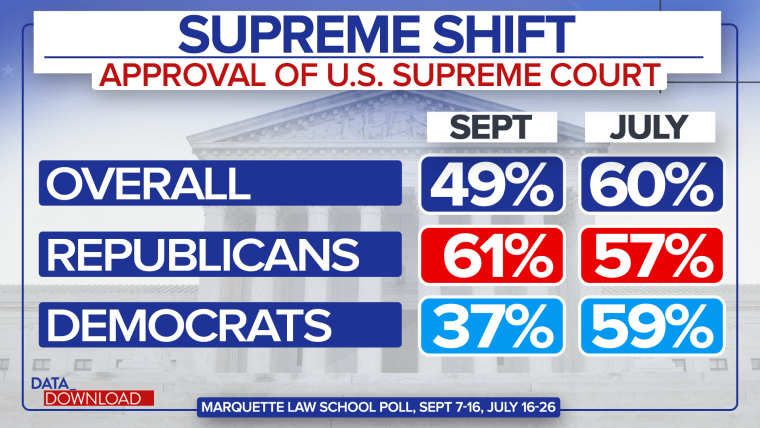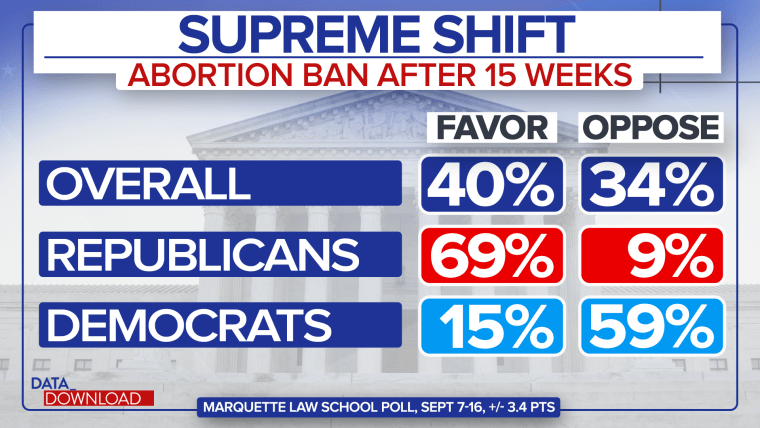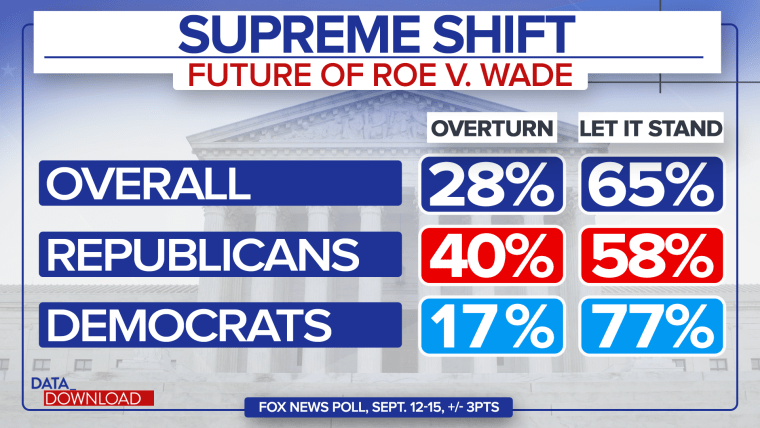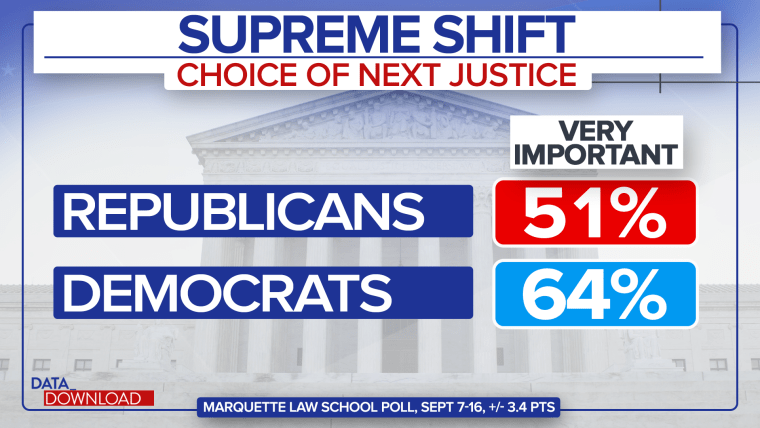WASHINGTON — The Supreme Court announced last week that it would hear arguments on a Mississippi law that bans abortions after the first 15 weeks of pregnancy, except in medical emergencies. The news was the latest evidence that abortion and the court are going to remain big political issues.
The Supreme Court had already waded into the topic over the summer when it refused to step in to stop the implementation of a Texas law that effectively bans most abortions after about six weeks.
With the decision last week, the court finds itself front and center in one of the most politically contentious topics in the U.S., one that could have big impacts on the 2022 midterm elections.
The change in voters' attitudes toward the Supreme Court in the last few months shows the impact of the abortion cases.

Over the summer, there was a small increase in Republicans' positive feelings about the court, according to polls in July (before the Texas ruling) and September (after the ruling) from the Marquette University Law School — a bump of 4 points, to 61 percent from 57 percent.
But there were sizable changes in the other direction, as well. Approval of the court among independents fell by 10 points — to 51 percent from 61 percent. And, as might be expected, approval among Democrats collapsed by a massive 22 points — to 37 percent from 59 percent. Overall, approval of the court fell to 49 percent, compared to 60 percent in July.
Voters don't get to elect the justices who serve on the Supreme Court, of course, but the numbers have meaning because they can drive voters' decisions at the ballot box. They can fire up abortion rights supporters and anti-abortion rights advocates.
So beyond the issue of abortion, what are the political stakes for the coming case? Well, if the ruling deals only with the post-15-week ban, the answer is mixed.

Among Republicans, 69 percent favor upholding the Mississippi law, according to the Marquette poll. Only 9 percent oppose upholding it, and 22 percent say they haven't heard enough. Independents have more mixed feelings — 38 percent favor upholding it, 30 percent want it struck down, and 31 percent haven't heard enough. Meanwhile, only 15 percent of Democrats favor upholding the law, while 59 percent want to strike it down.
The numbers follow a pattern you might expect: Republicans on one side, Democrats on the other and independents in the middle.
But if the court were to go further and use the case to strike down Roe v. Wade outright, allowing states to ban abortion, the political impacts could be much more consequential.

On the whole, Americans seem pretty strongly opposed to striking down Roe, according to a Fox News Poll — 65 percent is the highest number it has found before.
For a nation that can agree on very little, the big numbers are remarkable. A part of the Republican Party may strongly favor overturning Roe, but the data suggest that if that were to happen, political backlash could be immense.
The Marquette poll suggests that, right now, Democrats are more fired up about the Supreme Court than Republicans are.

Nearly two-thirds of Democrats say the selection of the next Supreme Court justice is very important to them personally. The number is 13 points higher than the 51 percent of Republicans who say that. For independents, the figure is 44 percent.
It's still very early, of course, with the midterm elections more than a year away, but those kinds of numbers are worth noting.
The next election cycle looks as though it might be especially turbulent and difficult to predict. It's not yet clear where Covid-19 and the economy are headed.
But at the moment it looks as if the Democrats may have motivating issues in abortion and the Supreme Court, and last week's decision to hear arguments in the Mississippi case seems likely to only heighten the profile of those issues.
The court will hear the arguments in December, and the decision will probably come down in May or June, just as the 2022 campaign is heating up.
CORRECTION (Sept. 26, 2021, 7:15 p.m. ET): A previous version of this article misstated when the Supreme Court said it would hear arguments on Mississippi's abortion law. The announcement was last week, not this week.